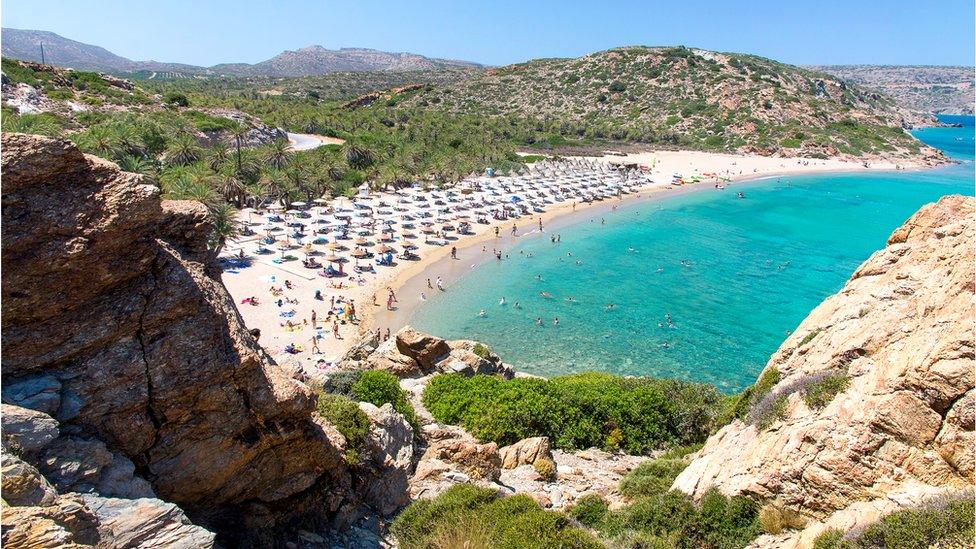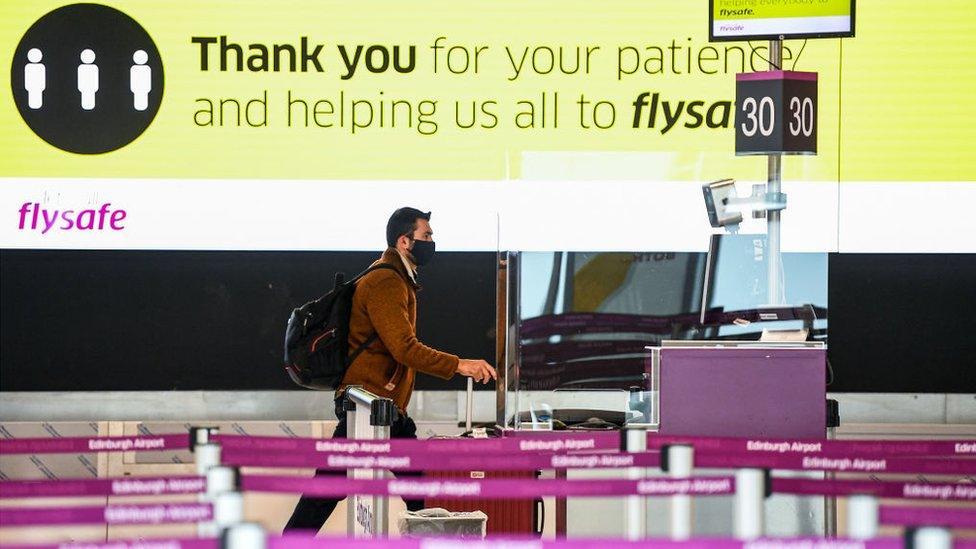People returning to Scotland from Greece must quarantine
- Published

Travellers re-entering Scotland from mainland Greece will have to quarantine from Saturday
People returning to Scotland from Greece and parts of Cyprus will now have to quarantine.
Those arriving from the Mediterranean country must self-isolate for 14 days, but the islands of Crete, Corfu, Kos, Rhodes and Zante remain exempt.
Those entering Scotland from the Sovereign Base Areas of Akrotiri and Dhekelia in Cyprus must also quarantine.
The changes take effect from 04:00 on Saturday.
The move follows what the Scottish government described as a "significant increase" in cases of coronavirus in those areas as well as a rise in the numbers of cases testing positive.
'Cause for concern'
Justice Secretary Humza Yousaf said it was imperative to disrupt the spread of the virus.
He said: "Our first line of defence in managing the risk of imported cases from communities with high risks of transmission is imposing quarantine restrictions.
"Over the coming week we will be closely monitoring the situation in the Greek and Spanish islands, in particular the Canary Islands, as the number of cases there are giving cause for concern."

The islands of Crete, Corfu, Kos, Rhodes and Zante remain exempt
But he said that the addition of nine destinations to the list of countries designated exempt from quarantine requirements should not be taken as a signal that people should travel abroad.
Those entering Scotland from Bahrain, Cambodia, Chile, Iceland, Qatar, United Arab Emirates, Turks and Caicos Islands and Laos no longer have to quarantine.
Mr Yousaf said: "Our message remains clear that people should think very hard before committing to non-essential foreign travel as the public health situation, and therefore our response to it, can change rapidly."
It was also confirmed that current additional restrictions in relation to Denmark are to remain in place for a further 14 days, but will be reviewed should new information become available on progress by the Danish authorities to contain the outbreak.
Denmark last week ordered the cull of millions of mink after an outbreak of a mutated strain of the virus.


- Published5 November 2020
